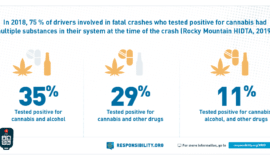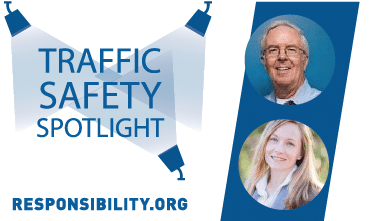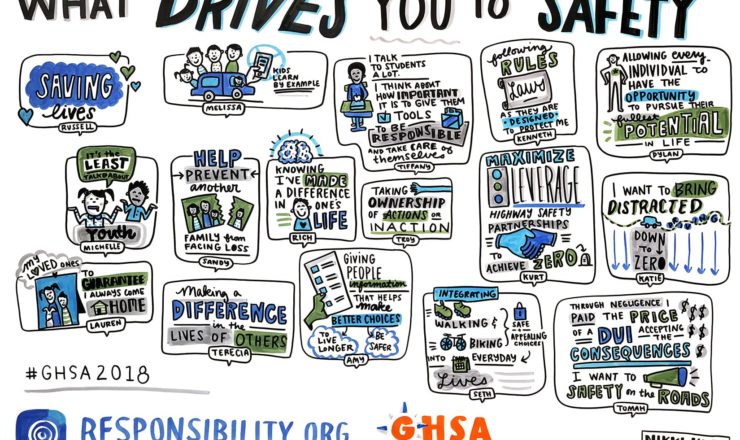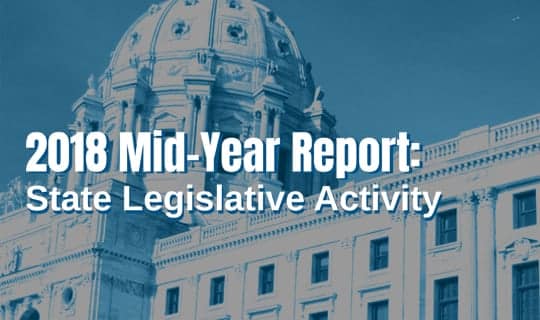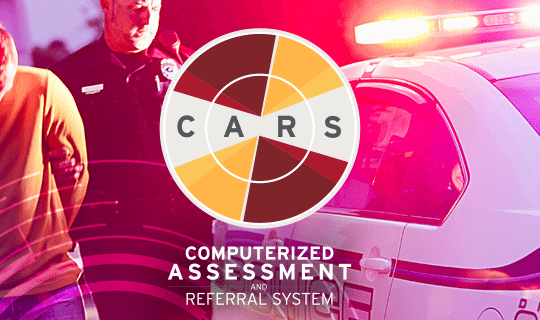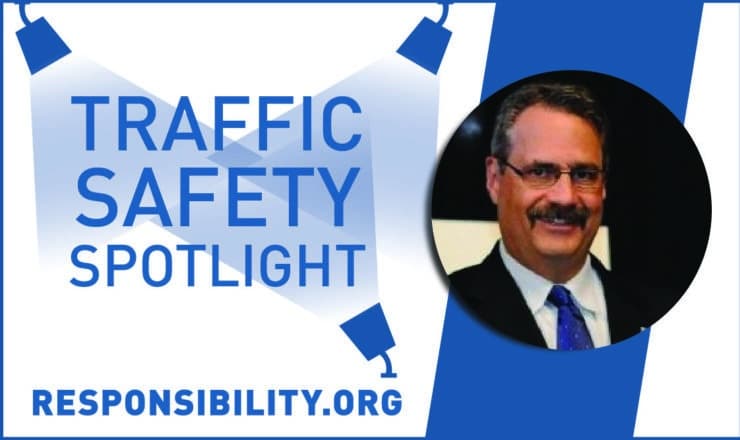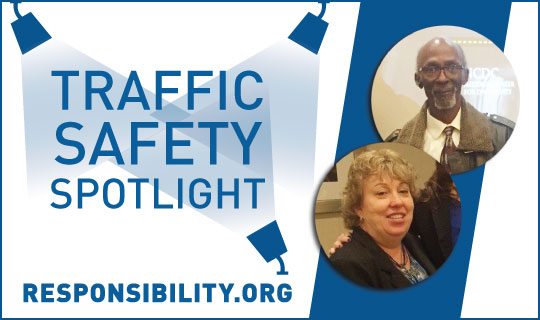CARS 1-Year Anniversary: 12 Months of System Improvement
Judge Richard Vlavianos of San Joaquin County, California often relays a story about one of his DUI Court participants that underscores the need for assessment. Her underlying mental health issues, which likely contributed to her offending, had gone unidentified despite multiple convictions. Only after an assessment was performed were these issues finally addressed. Judge Vlavianos isn’t the only judge who now has the opportunity to better identify the treatment needs of DUI offenders. For the past year, practitioners in over 40 states have been using the Computerized Assessment and Referral System (CARS) to inform decision-making and individualize justice. Take a look:
Repeat offenders account for approximately one-third of individuals arrested for drunk driving each year. This is a statistic that has not improved in more than three decades. Why is that?
More than a decade ago, a team of researchers at the Division on Addiction at Cambridge Health Alliance a teaching affiliate of Harvard Medical School, embarked on the groundbreaking research. Dr. Howard Shaffer and his team examined the prevalence of mental health disorders among repeat impaired drivers. This research, and an ensuing partnership with Responsibility.org, culminated in the development and implementation of CARS, an innovative screening and assessment instrument, which was officially launched one year ago.
To mark the one-year anniversary of the release of CARS, we are taking a look at what has been accomplished over the previous twelve months, namely:
High demand for the instrument with more than 450 CARS registrants from 43 states.
Use of CARS within Colorado’s new Level II 4+ program for felony DUI offenders.
Integration of CARS at every intercept of the DUI system.
Improved sentencing, supervision, and treatment decision-making and outcomes in the field.
Furthering the conversation about the importance of assessment and the need to identify both substance use and mental health disorders among impaired drivers.
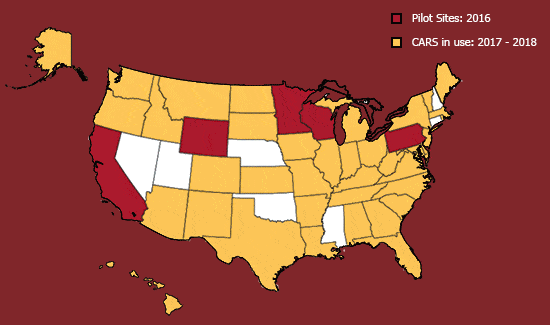
The interest in the use of the instrument reflects a shift towards a more comprehensive approach to addressing the needs of impaired drivers. Historically, screening and assessment for mental health disorders has not been performed with this offender population. CARS was developed to fill this gap in the system. Its widespread use in the field demonstrates that practitioners are interested in identifying the mental health disorders that they may have previously missed.
Colorado Level II 4+
When Colorado became the 46th state to pass a felony impaired driving law (four or more DUI convictions), the Office of Behavioral Health realized that a new treatment framework was necessary to address the unique needs of this high-risk population. The Level II 4+ program was launched last July and requires all felony DUI offenders to undergo extensive assessments and for treatment providers to utilize tools that are “specifically designed to address co-occurring mental health issues in the impaired driver population.” CARS has subsequently become the assessment instrument of choice and a training was delivered by the Division on Addiction to 200 providers seeking Level II 4+ certification this past August. The instrument is now being used throughout the state.

Integration throughout the system
Ideally, an assessment will be conducted as early in the criminal justice process as possible to guide decision-making. However, it can be done at any intercept in the system including: post-arrest, pre-trial, pre-sentencing, post-conviction, community supervision, treatment program. CARS was designed with the flexibility to be used at any of these junctures and, we are happy to report, that registrants represent each of these system facets. The most common user described settings for CARS use include DUI treatment programs, treatment courts, substance use treatment programs, court programs, community corrections, and pre-trial services. There has also been interest from correctional institutions and emergency departments/healthcare facilities.
Improving Outcomes
Through the use of CARS, practitioners in the criminal justice and treatment systems can now delve deeper and obtain valuable information about their clients’ risk level and individual treatment needs. This, in turn, allows them to develop a holistic picture of the impaired driver on their court docket, supervision caseload, or participating in their treatment program which, ultimately, can lead to more appropriate responses and better long-term outcomes (i.e., reductions in recidivism and recovery).
In his recent blog, DUI Monitoring Court Compliance Manager Nathan Summers shared that by using CARS, he is able to make better referrals and also to help vulnerable individuals. He noted that “the information obtained from the assessment can help guide decision-making, improve outcomes, and it might just allow you to save a life. And making that kind of difference, even for one person, is worth it.” Judges, probation officers, and treatment professionals from across the country have expressed that CARS affords their agencies/programs the benefit of being able to make well-informed decisions and to connect their clients with treatment interventions that match their needs.
Furthering the Conversation
The criminal justice system works when a first offender remains just that instead of becoming a repeat offender; assessment is the initial step towards realizing this goal. Too often, sentences, supervision decisions, and treatment plans are made based on an individual’s criminal record or risk level. But the reality is that the focus should be on treating the individual, not attempting to treat the DUI. This ‘manufacturing’ of a standard form of justice for offenders who seemingly fit into similar molds (i.e., the average drunk driver) misses opportunities to address all of the underlying causes of their criminal behavior and effectively treat them.
The release of CARS has provided an opportunity to have a larger conversation about how to improve practices within the criminal justice system and to discuss the importance of using assessments as a roadmap. In the last year, I have been fortunate enough to engage in dialogue with practitioners from more than 15 states about these principles. In each CARS workshop I deliver, one of the most important messages is that by investing the time necessary to conduct screening and assessment, there can be tremendous return – identifying who is low risk vs. high risk; determining whether individuals meet the criteria for substance use or mental health disorders; identifying criminogenic risk factors; and matching individuals with interventions. I stress this because a criminal justice system that individualizes justice will ultimately be more effective in stopping the revolving door of system entry, protecting public safety, changing behavior, and improving the quality of life of the individuals that enter it. CARS can play an important role in this individualized approach.
What’s next for CARS?
As the use of CARS continues to spread throughout the country, Responsibility.org continues to obtain and use feedback from practitioners to improve the tool’s functionality and to guide future developments. What can you expect in the coming years?
- Use of the CARS screener in emergency departments to identify individuals who are at risk for substance use and mental health disorders
- Availability of an updated version of CARS that uses DSM-V diagnostic criteria
- Development of a Spanish version of the CARS screener and assessment
For more information about CARS and to download the assessment, visit www.carstrainingcenter.org. Also, reach out to our team to tell us how you are using the instrument and ways that we can expand its impact in the field.


